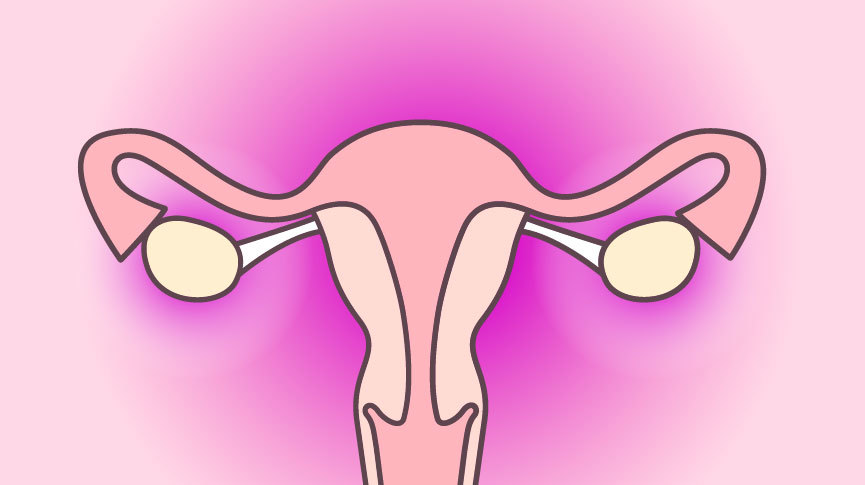Yes, Menopause Can be Induced by Surgery

We’re all familiar with menopause. The time in a menstruating person’s life, when they well, cease to menstruate.
There are endless factors that contribute to when someone stops getting their period. A lesser-known factor is a surgically induced menopause or surgical menopause. While the average age someone reaches menopause is 51, someone much younger may reach it as a result of surgery.
Under The Knife
That’s right. A bilateral oophorectomy, or the removal of both ovaries, causes a person to stop producing estrogen, and other hormones that are vital for ovulation. No ovulation, means no periods. This procedure may be done alongside a hysterectomy, the removal of the uterus, or other gynecological procedures.
Surgical menopause is not uncommon either. An estimated one in nine women will have a hysterectomy in their lifetime. While one in five of those turned out to be medically unnecessary after the fact. Like most surgical procedures, there are potential risks and side effects like infection, hemorrhage, and damage to surrounding organs.
While major gynecological procedures should not be taken lightly, and be considered a somewhat last resort, there are certain cases where they can change peoples’ lives for the better. The most common reasons for a bilateral oophorectomy are endometriosis, ovarian cancer, benign cysts or tumors, and ovarian torsion.
Goodbye Hormones
So much of what dictates how our bodies operate are a result of the powerful chemicals we know as hormones, rushing through the body delivering messages. The mighty ovaries are the glands that secrete reproductive juices like estrogen, testosterone, and progesterone.
It’s not just ovulation and periods that these hormones control. Estrogen influences the brain with temperature regulation (hello hot flashes!), balancing moods, as well as maintaining the elasticity of the skin through collagen production, and regulating cholesterol to maintain the heart and arteries.
Progesterone is commonly known for its vital role in sustaining pregnancy. That’s not all it’s good for though. This helpful hormone also helps to regulate breast, cardiovascular, and nervous system health, as well as brain function. It has a calming effect on the brain, acts as an anti-anxiety chemical, and enhances memory and cognition.
Testosterone is not just for males! We can’t forget about its role in female reproductive health as it helps with libido, maintaining muscle mass and bone density, and with estrogen production.
Removing the source of these hormones causes a ripple effect throughout the body, aka surgical menopause.
Hormone Replacement Therapy
Because of the sudden shift in hormone secretion in the body, many people choose to undergo HRT, or hormone replacement therapy post surgery to help circumvent some of these effects.
Of women who have had their ovaries removed, about 74% have used HRT, whereas only 29% of women who experienced natural menopause used it.
HRT has been shown to be relatively harmless, and make the process of menopause that much more easeful. Especially when it occurs rapidly, or at a younger age as a result of surgery.
Are There Side Effects?
Thanks to the huge shift of hormones within the body, side effects are inevitable, and to a certain extent- a normal part of menopause. Things like hot flashes, fatigue, insomnia, changes in skin, sex drive, and mood are not outside of the realm of normal. Surgical menopause, however, can have a much more sudden onset and severity of symptoms.
- Infertility: Although this one is obvious, it can be an emotional side effect, especially for someone who experiences this at a younger age.
- Osteoporosis: Without estrogen telling bones to get stronger, bone density tends to decrease, increasing the risk of osteoporosis.
- Heart Disease: Women who experience surgical or premature menopause have a higher chance of developing cardiovascular disease than those who reached menopause later in life.
- Mortality: Researchers found a 16.8% increase in mortality in those who experienced surgical menopause.
- Residual Ovary Syndrome: 1 in 35 women experience this painful condition after a bilateral oophorectomy, which may cause pelvic pain, mass, and dyspareunia – pain with sexual intercourse.
- Psychological: The changing of hormones, and journey to a new part of life can result in negative psychological effects, especially in those with preexisting anxiety, depression, or other mood disorders.
Menopause is a natural part of life for people with female bodies. It’s part of the aging process, and looks different for everyone.
While the effects of surgical menopause can be more extreme than natural onset, these surgeries are often done to enhance the individual’s overall quality of life.
If you’re considering a hysterectomy or gynecological procedure that may induce menopause, be sure to do your research, ask all the questions, seek advice from multiple providers, and be clear on your decision.
At the end of the day, you know what’s best for you and your body.

Natasha (she/her) is a full-spectrum doula and health+wellness copywriter. Her work focuses on deconstructing the shame, stigma, and barriers people carry around birth, sex, health, and beyond, to help people navigate through their lives with more education and empowerment. You can connect with Natasha on IG @natasha.s.weiss.



Hello!
Surgical Menopause here at 36 due to radiation for cervical cancer. I’m now 42, on HRT and managing through. Do you know if there is any research around length of symptoms? Do I have just 10 years of this or maybe another 20? AUGH. I know that a definitive number is not available, but I have not been able to see anything on this to even have an estimate.